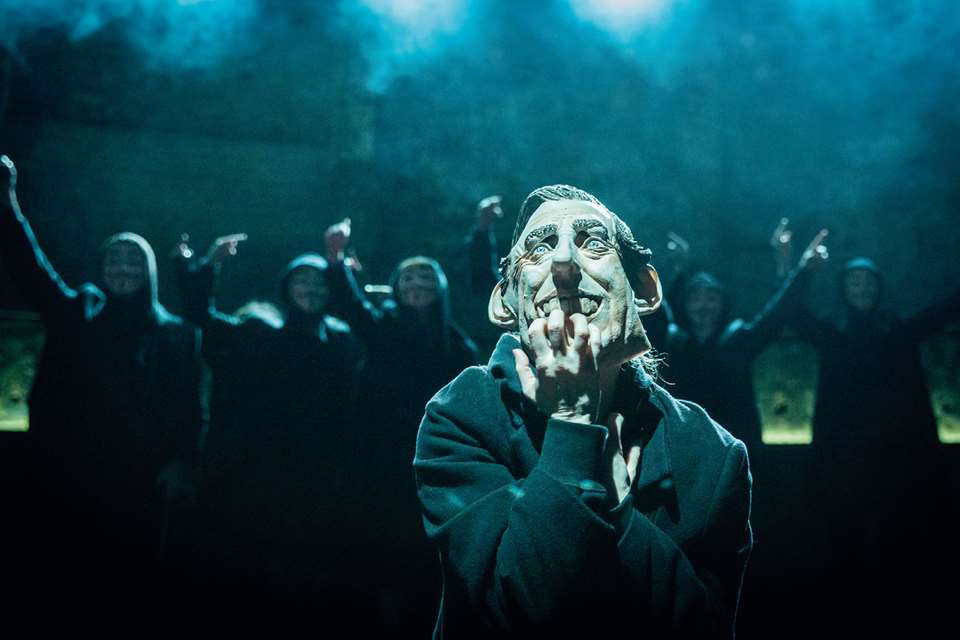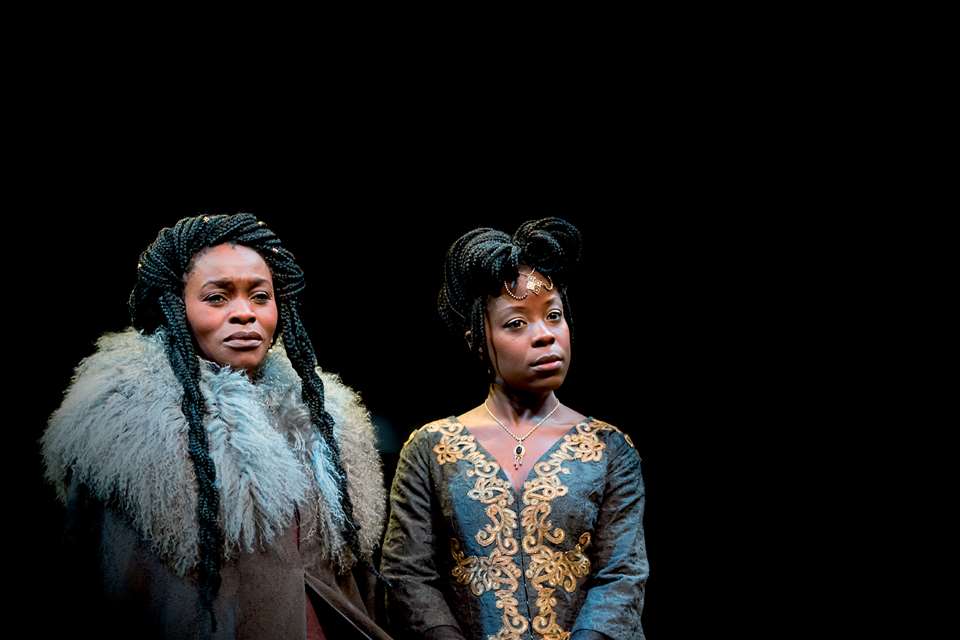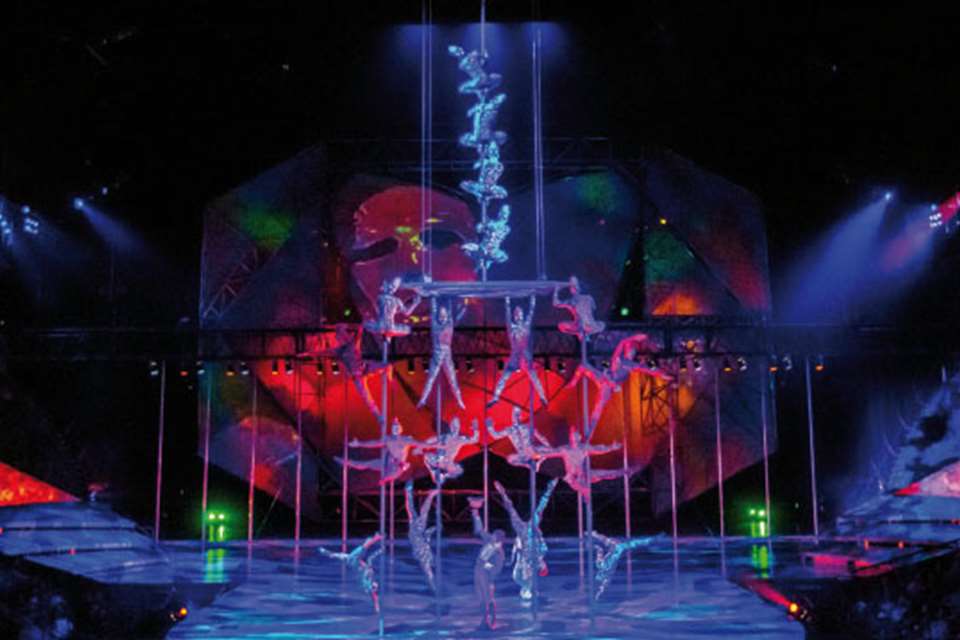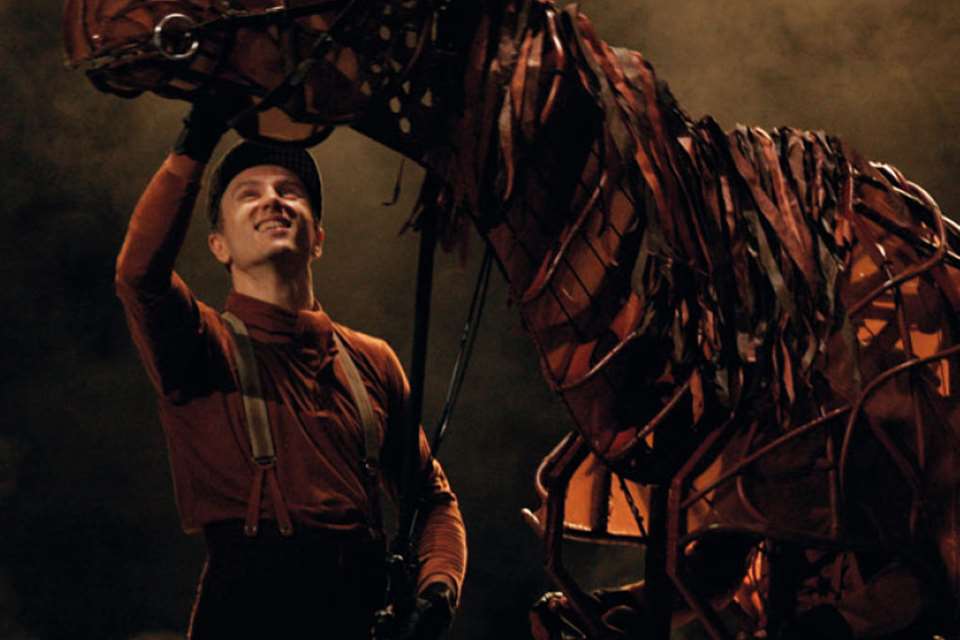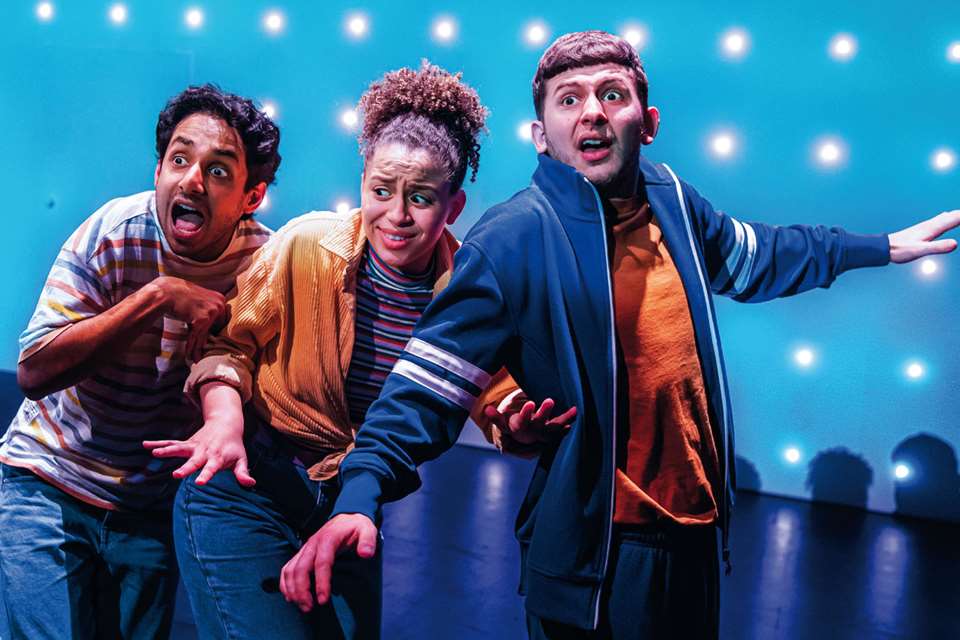Practitioner focus: LUNG Theatre
Paul Bateson
Wednesday, September 1, 2021
Founded in Barnsley in 2012, LUNG Theatre is a campaign-led company who shine a light on political and social issues in modern Britain through their creative works, using people's actual words to tell their stories.
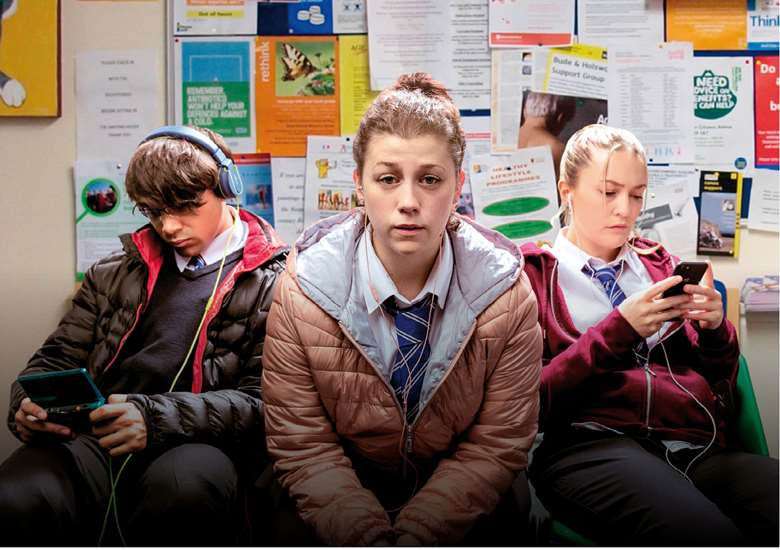
The other Richard
Co-artistic director Matt Woodhead says: ‘With Lung's work, the show is just the beginning – the company wants to have an impact on policy.’
Since their first show The 56; a poignant, pertinent piece adapted from real-life testimonies about a tragic fire at Valley Parade football ground – LUNG have produced plays that not only stand up in terms of artistic merit, but that also stand up for the issues they highlight.
E15 tells the story of how a group of women fight eviction from their hostel in London, which The Guardian said ‘[brought] the issue of homelessness right into the auditorium’. The company spent two years campaigning with the ‘Mums' before producing the show, which epitomises LUNG's approach to research, and desire to be faithful to the subject matter and people involved.
With Chilcot and Trojan Horse, LUNG took published text and audio from government inquiries as a starting point for shows that investigate the 2003 invasion of Iraq, and Muslim teachers accused of plotting extremism in schools. These productions highlight LUNG's commitment to work that tackles big political issues.
Who Cares is a verbatim play based on interviews that offers an insight into the lives of young carers. The show toured nationally, was adapted for BBC Radio 4, and has a free supporting education pack.
Key features
- Themes and content that tackle social and political issues
- Stories that amplify hidden voices
- Documentary or verbatim theatre style
- Using interviews
- Using found text or audio
- Direct address or narration.
The immediacy of a verbatim text makes LUNG Theatre's plays a great choice for young people, and the verbatim style itself can give young people a platform to devise around issues that are important to them. The documentary style is an interesting process that supports creating dialogue through research and interviews. You may wish to ensure students have a basic understanding of what we mean by verbatim theatre and its ethical implications before you begin a more practical workshop.
Exercise 1: Recorded delivery
All of LUNG's work contains dialogue that is verbatim from recorded interviews. Using the ‘recorded delivery technique’ can be a good starting point.
Play a video and ask the actors to copy the ‘performance’ exactly, mirroring movements, mannerisms, vocal expression and words. Videos could be interviews from news programmes, sports events, speeches in parliament, TED Talks, or protests. You could even use famous speeches such as ‘I have a dream…’ or ‘We will fight them on the beaches.’
Next, using mobile phones, ask students to record themselves speaking on a topic for 30-60 seconds. The prompt can be simple: ‘a memorable journey’, ‘a funny moment’, or more challenging things such as opinions on a contemporary issue or event. Students then swap recordings, and performers listen through headphones live onstage and simply speak the words as they hear them. Recorded delivery allows the performer to recreate the original words in an authentic way – every cough and hesitation is recreated.
Homework
Conduct an interview, to generate material. Start with something light touch, such as asking a family member to tell you about ‘a little act of rebellion’ or a time they were proud of themselves.
Exercise 2: Using found text or audio
Play audio recordings relating to a certain theme or event, such as ‘the environment’. This could feature individuals such as Sir David Attenborough, Greta Thunberg, Donald Trump or leading scientists. Create still images in response, not necessarily of the people who have spoken the words, but symbolic or abstract pictures that capture the essence of the material. This can be done individually, or in pairs or groups. Develop the images with transitions, to create movement pieces, set to the verbatim audio.
In the style of LUNG
In the same way that LUNG want to impact policy, you could mind-map issues the students might like to highlight through theatre. From local to international, personal to public. It is really exciting giving young people agency over the direction of their work in this way.
Using the techniques explored above, students gather material on their focus, through existing audio or video, official reports and statistics, or interviews that they conduct and transcribe themselves. Search for the ‘big’ and the ‘small’ of the issue; the ‘public’ and the ‘private’. So, for example on the subject of immigration, that could be text from official government reports, or testimony from asylum seekers, interviews with friends on their views, or speeches in parliament. Using direct address, choral speaking and ensemble work, movement, and role play, students bring their material to life.
For information on LUNG Theatre, their shows, and education resources, visit www.lungtheatre.co.uk


